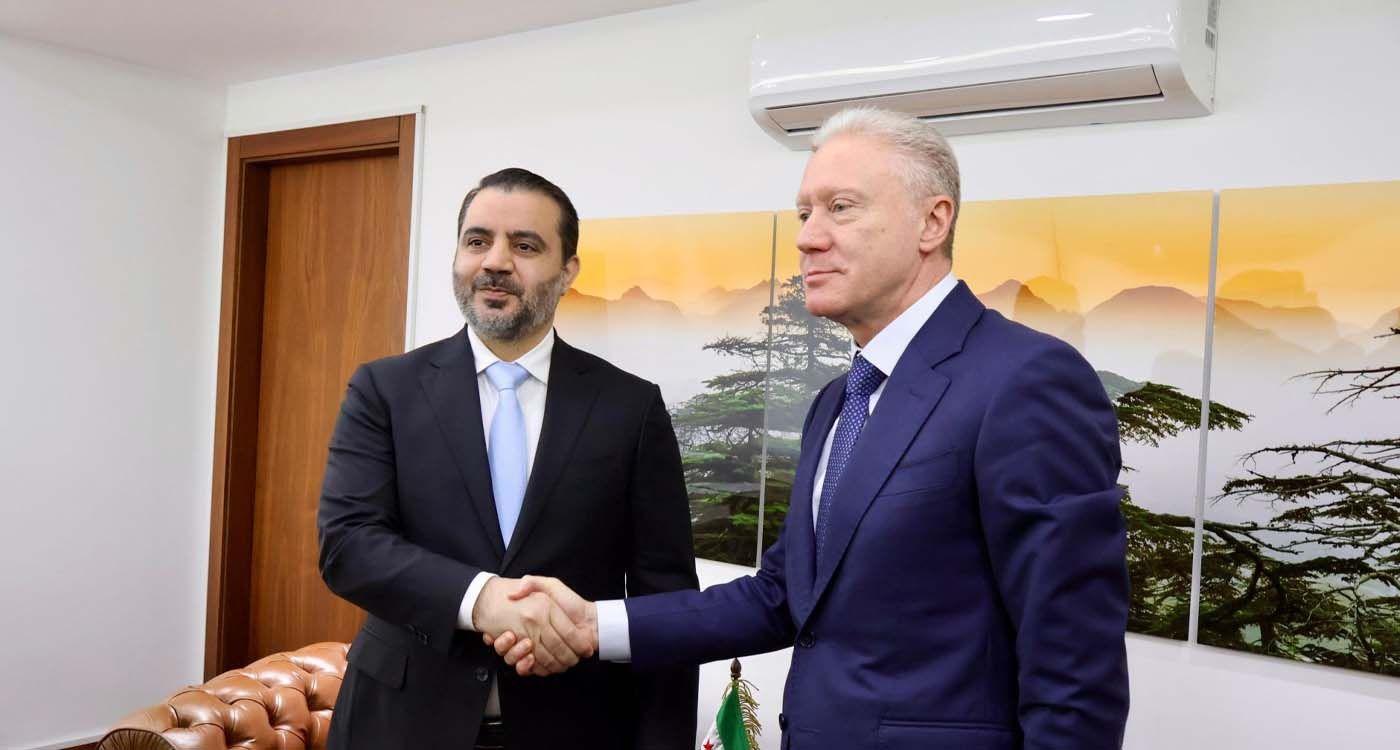
Syrian Foreign Minister Assaad al-Shaibani is visiting Beirut this Friday for his first official trip since the fall of Bashar al-Assad’s regime.
Long postponed, the visit marks a symbolic step toward restoring ties between Lebanon and Syria after a decade of mistrust. It follows a series of technical missions by Syrian officials exploring conditions for gradual rapprochement.
The agenda includes Syrian prisoners in Lebanon, border demarcation, security cooperation and diplomatic relations, which Shaibani is set to discuss with Lebanese authorities.
Syrian Prisoners at the Heart of the Dispute
Lebanese media report that Syria is demanding the immediate release of all Syrian detainees in Lebanon, including those linked to the Free Syrian Army (FSA) or other opposition groups.
Beirut has taken a measured approach, categorizing prisoners into three groups: those convicted of serious crimes, those charged with minor offenses and those held without trial. Lebanon proposes releasing the second group, fast-tracking trials for the third, and reviewing the harshest sentences on a case-by-case basis, provided they do not involve attacks on the armed forces. A bilateral judicial agreement is also in the works, potentially allowing some detainees to serve their sentences in Syria under joint supervision.
Damascus considers this approach too restrictive and is calling for the unconditional release of political prisoners, arguing that “circumstances have changed” since the fall of Assad’s regime and that these detainees can no longer be classified as terrorists.
Borders and Smuggling
The border issue remains highly sensitive. Syria is demanding the withdrawal of the Lebanese Armed Forces (LAF) from several points it views as encroachments dating back to the 2014 Ersal clashes, while Lebanon insists the positions remain entirely on its territory.
Diplomatic sources cited by Al Markazia report that Saudi Arabia is mediating between the two capitals to give political momentum for a comprehensive border agreement. Discussions continue via a joint military operations room, but the signing of an official protocol will require political approval from both presidents.
Refugees: An Unsustainable Strain
Lebanon hosts nearly two million Syrians – including economic migrants, displaced persons and refugees – about 750,000 of whom are officially registered, making it the country most exposed to migration pressures in the world, relative to its population.
Arrivals continue unabated: in March 2025 alone, 21,000 Alawite Syrians fled violence in Sweida and along the Syrian coast, seeking refuge in northern Lebanon and heightening sectarian tensions in Sunni-majority areas such as Tripoli and Akkar.
Beirut views the situation as a national emergency, while Damascus advocates “gradual and secure” returns, rejecting any mass reintegration that could further destabilize its fragile internal balance.
Bank Deposits: Between Reconstruction and Bankruptcy
Syrian assets frozen in Lebanese banks remain a major source of tension. Damascus values them at “tens of billions” of dollars, while Lebanese estimates range from $3 to $10 billion.
For Syria, the funds are crucial for reconstruction. For Lebanon, their release hinges on comprehensive financial reforms, making any short-term resolution unlikely.
Hezbollah: From Ally to Burden
A defining shift in the post-Assad era is Damascus’ changing relationship with Hezbollah. Once a key ally of the regime, the Iran-backed group is now seen by President Ahmad al-Sharaa as a burdensome relic of the past.
“We have moved beyond the wounds Hezbollah inflicted on Syria,” he said in August, stressing that Damascus does not wish to be used by those settling scores with the group. “We are neither an existential threat nor a bargaining chip against Hezbollah.”
End of a Cycle, Beginning of a State-to-State Era
Shaibani’s visit comes as Damascus notifies Beirut that all future bilateral exchanges must go through official diplomatic channels, effectively suspending the Higher Lebanese-Syrian Council, established in 1991 to institutionalize ties between the two countries.
With this move, Damascus closes one of the enduring symbols of the Assad era, signaling its intent to redefine relations with Lebanon on a state-to-state basis, breaking with past influence networks and security arrangements.
The gesture is highly symbolic, ending a chapter of dependency and potentially opening a new era of equal-footed dialogue between Beirut and Damascus.




Comments